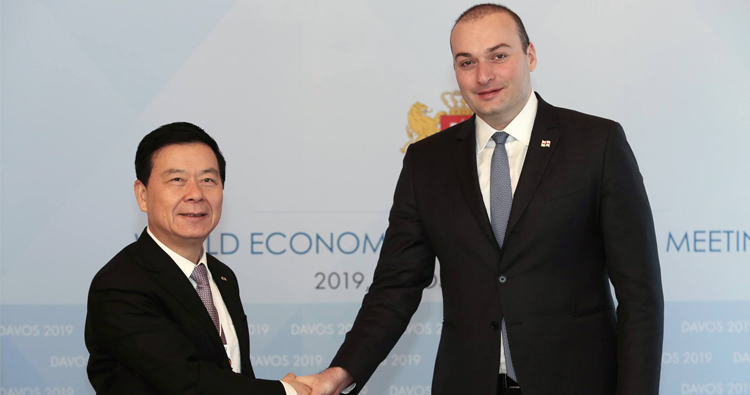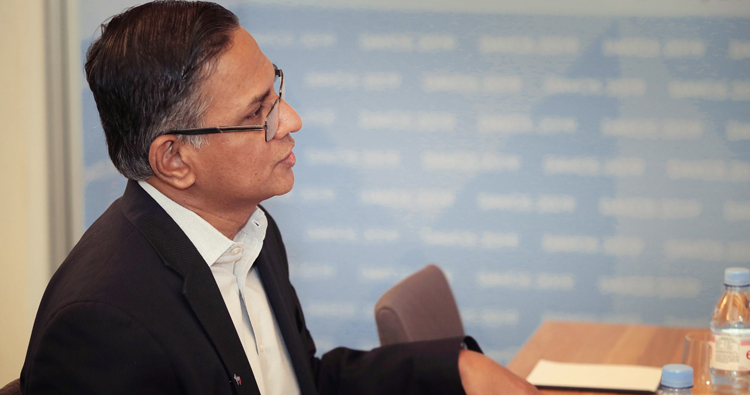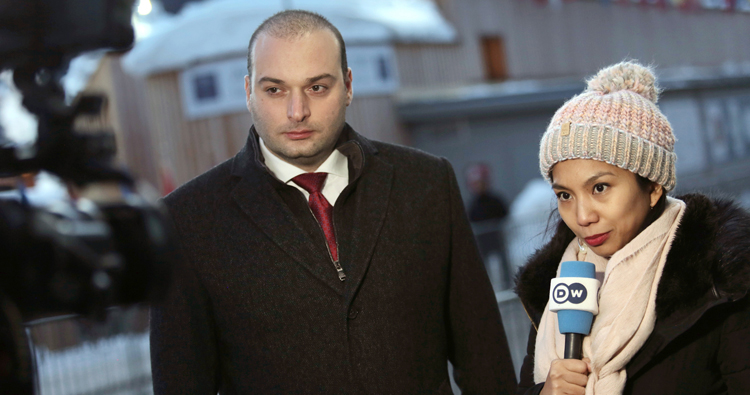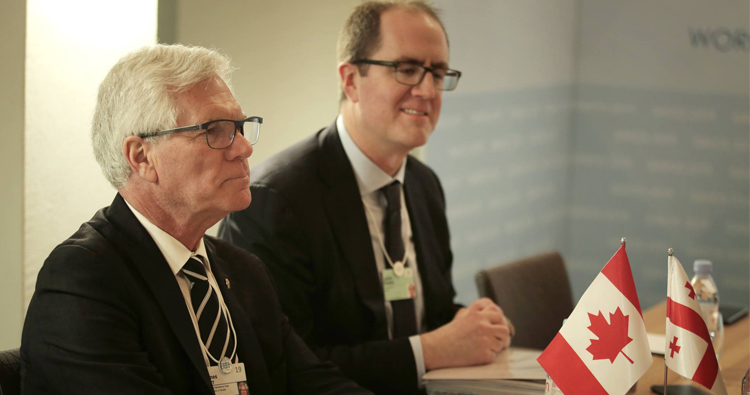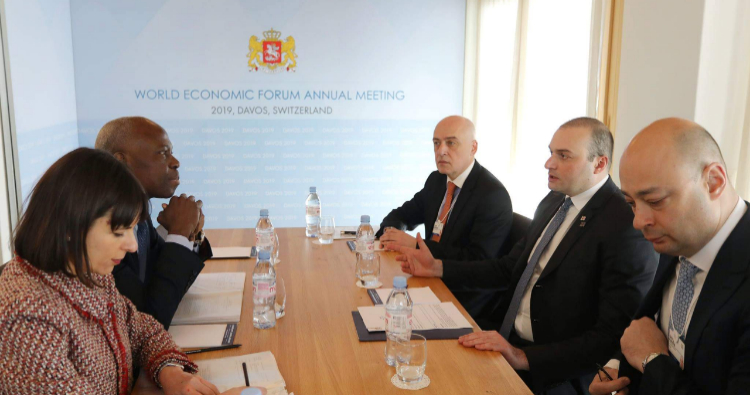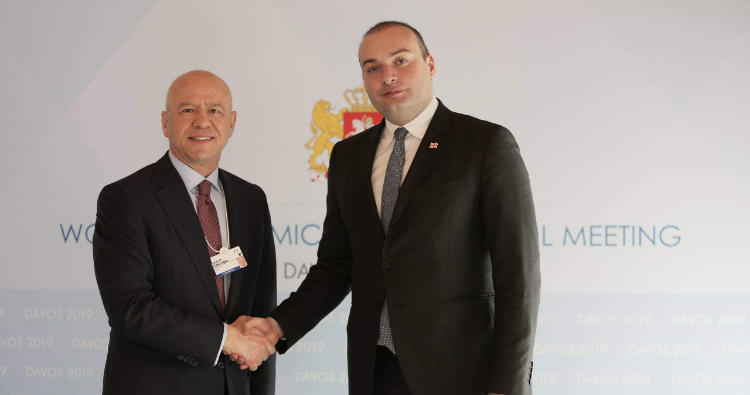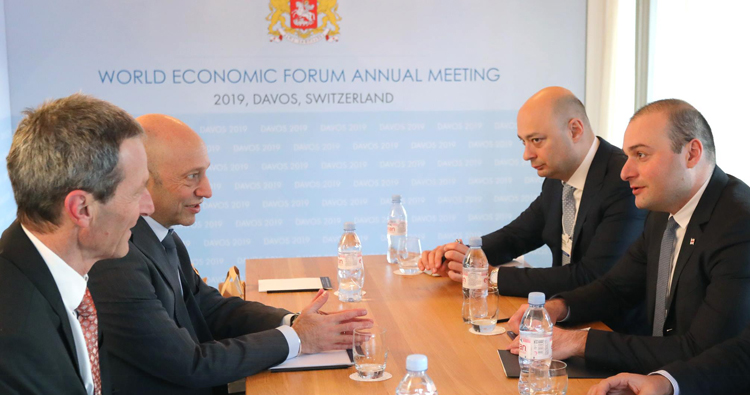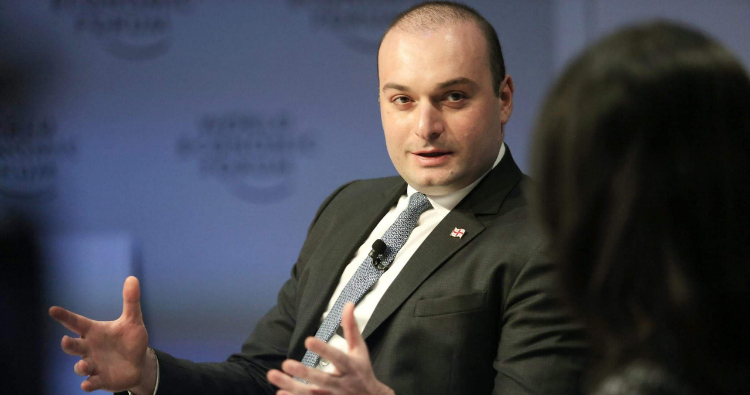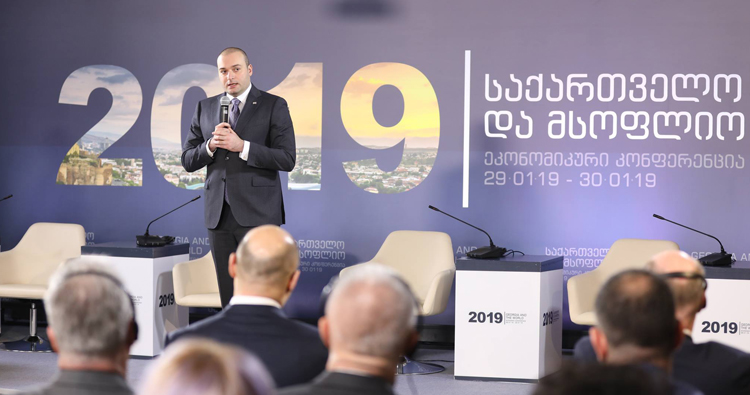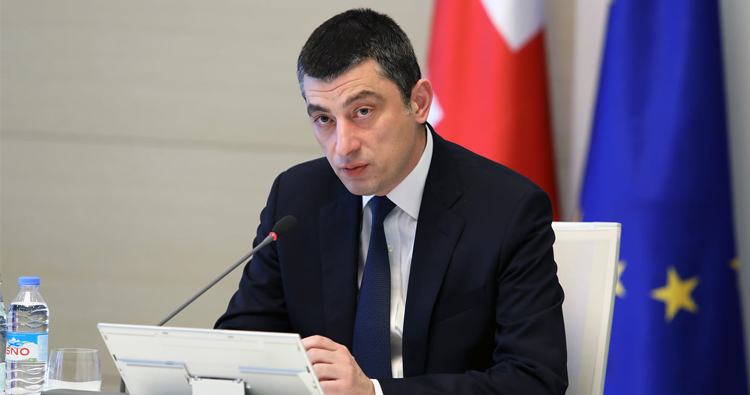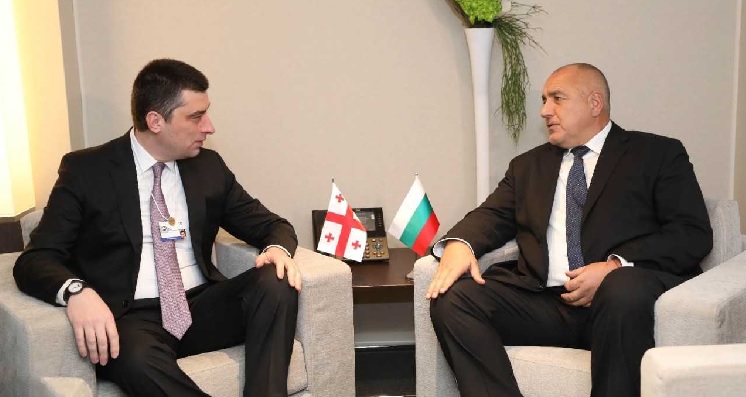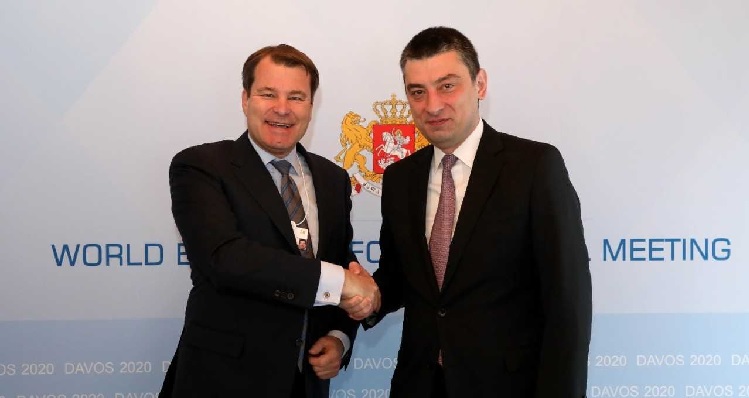Davos 2019: Georgian PM in ‘Strategic Outlook - Eurasia’ discussion
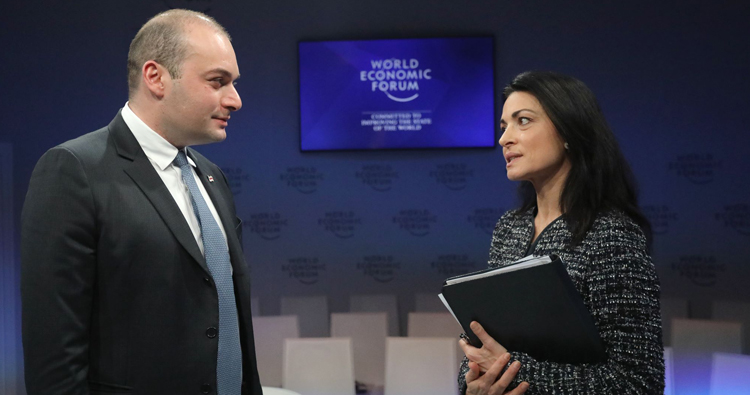
Georgian PM participated at ‘Strategic Outlook - Eurasia’ discussion' that was held today within the World Economic Forum. Photo: Gov't of Georgia.
Georgian Prime Minister Mamuka Bakhtadze has participated in a discussion held at the 49th World Economic Forum in Davos, Switzerland.
During the World Economic Forum, Georgian PM together with the vice-chairman of SUN Group, dean and professor at School of International Relations, Austrian Minister of Foreign Affairs and Integration and president of the European Bank for Reconstruction and Development (EBRD), participated in the ‘Eurasia in a New Global Context’ discussion.
The moderator of the discussion gave questions to all participants, which was mainly focused on the prospects of the region. It was noted that new leadership are transforming their countries in the Caucasus and in Central Asia to become much more dynamic.
The moderator gave the first question to Bakhtadze, accented his young age (36) and told him: “you represent a new, young, dynamic leadership within this region. How do you see the trends that are taking place right now?”
Bakhtadze answered that the region has tremendous economic potential.
As Georgia we are serving eight landlocked countries, we are the gateway for this very important region. I do believe that in coming years this region will become the main driver of the economic growth on entire Eurasia continent. Also we see that there is some turbulence going on in some parts of this region. Anyway, I am very confident that the economic prospect of the region is really very bright”, said Bakhtadze.
Watch the video below to see the full session.
The next question was about Georgia’s goal to become an economic and transport hub. Bakhtadze said that Georgia is a natural candidate to become a regional hub for business and transportation and logistics.
We regard ourselves as a bridge from Europe to Asia. Our historical routes are European and our outlook is also European. But at the same time Georgia is located at the crossroads of civilizations. We would like to facilitate to trade between Asia and Europe, between China and European Union and at the same time Georgia is the only country in the region that has free trade agreement with both European Union and china. I see here a big synergy.
With the new logistical routes we will be able to unlock a very big economic value that really does exist in these countries [8 landlocked countries]”, he said.
The moderator raised the issue of Russian threats and how to easy Russian tension in the region.
Bakhtadze said that 20 per cent of Georgia is occupied by Russia and Russia still continues its occupation.
Russia is taking aggressive steps against Georgia. Our answer to this most painful challenge is of course consolidation of our democracy and rapid and sustainable development of our economy”, said Bakhtadze.
Discussed #Georgia ‘s success story, positioning and vision
— Mamuka Bakhtadze (@BakhtadzeMamuka) January 23, 2019
at #WEF19 panel “Eurasia in a New Global Context”. Boosting #connectivity in all areas of #cooperation is crucial for economic growth and political stability in the region and beyond. #Davos pic.twitter.com/BEC3b0C8qP
Bakhtadze said that integration into European family was a civilised choice of Georgia. He said he believes that Georgia’s integration into NATO was in the interests of the region as well since the Caucasus region would become more stable.
This region needs stability. We believe that our aspiration to become a member of the European Union and NATO serves regional interests because it will help the region to use its economic potential”, Bakhtadze said.
He also accented Georgia-US relations and said that the relations are all time high level today.
United States is our strategic partner and now the US-Georgian relations are all time high level. We see deepening of our cooperation in security and also in the fields of economics and business”, he said.
Bakhtadze talked about how important it is for the region to develop the infrastructure.
There is a very big value unlocked in central Asia and the major obstacle to unlock this value to global economy is of course transportation and logistics. In Georgia we are constructing a deep sea port to help these nations to trade with the rest of the world, to decrease their costs of logistics, to make them more competitive”, Bakhtadze said.
While talking about infrastructure one of the attendees of the discussion made a remark to the Georgian PM that infrastructure in Georgia needs an upgrade.
“I fully agree that we have to upgrade our infrastructure”, responded Bakhtadze, “we have to make our transportation system more competitive. But at the same time we are looking for private sector driven projects. In this respect we are trying not to increase our state debt and attract more private investments implement all these historic infrastructural projects”, Bakhtadze said.
 Tweet
Tweet  Share
Share
